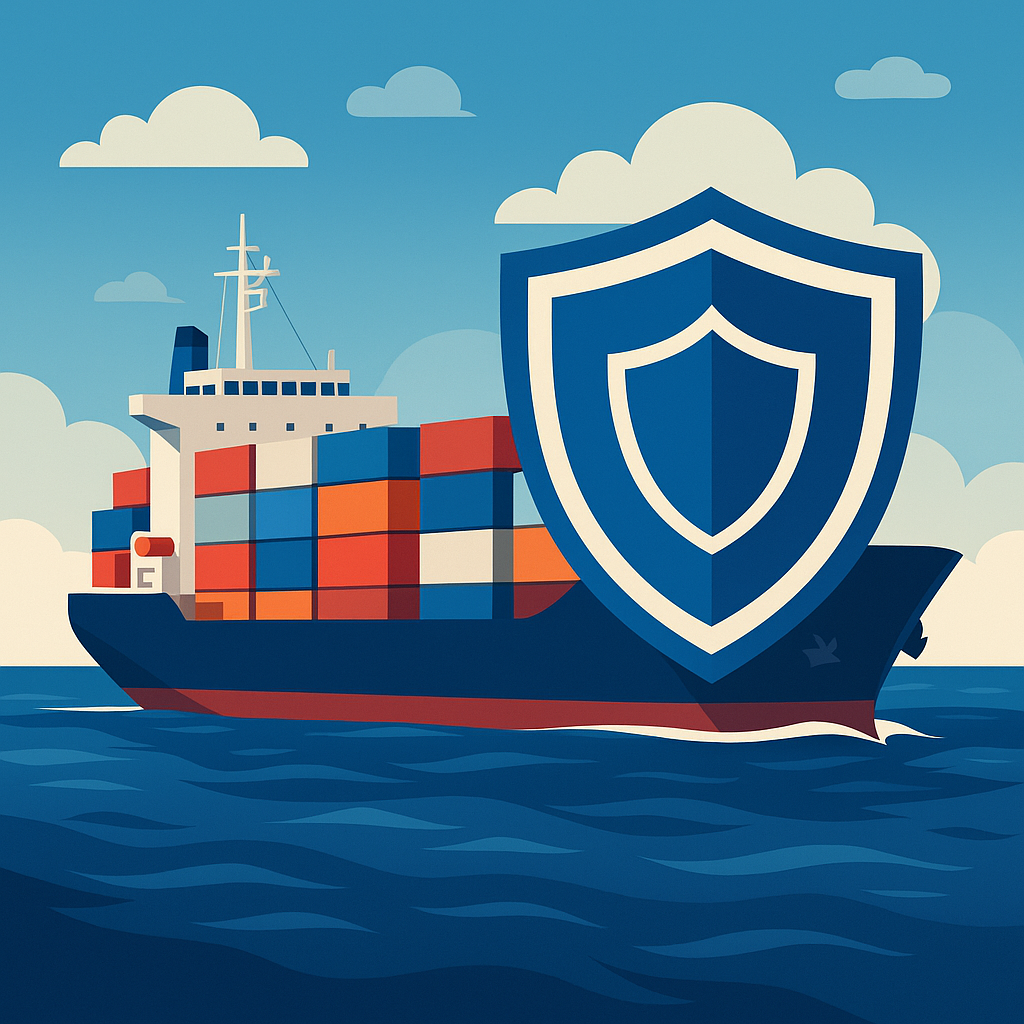What Is Marine Cargo Insurance?
How cargo insurance works
What Does Marine Cargo Insurance Cover?
A well‑structured cargo policy provides more than just compensation for lost cargo. Typical coverage includes:
- Physical loss or damage: Cargo policies generally cover losses caused by fire, explosion, water damage, impact or collision and mishandling during loading or unloading.
- Theft and pilferage: Coverage can include complete theft or partial loss due to pilferage or container tampering.
- Natural disasters: Acts of God such as earthquakes, storms, lightning or floods may be covered.
- Transportation‑specific risks: Accidents involving the vessel or carrier, derailments or a ship sinking are typically covered.
- Non‑delivery and misdelivery: Many policies pay out for losses due to misrouting, unexplained disappearance or customs seizure (when extended cover is purchased).
- Temperature‑related damage: For perishable goods, you can buy clauses covering damage from improper refrigeration or exposure to extreme temperatures.
It is equally important to understand what marine cargo insurance does not cover. Standard policies usually exclude losses from inadequate packaging, delays, inherent vice (the natural deterioration of goods), acts of war or terrorism and losses beyond the policy’s limit. Special war‑risk cover or strike cover can be added if you need protection against political unrest or labour actions.
Types of Marine Cargo Insurance
All‑risk coverage (Type A)
An all‑risk policy is the broadest form of coverage. It protects against most causes of physical loss or damage from external events—such as accidents during loading or unloading, theft and natural disasters—except for specific exclusions like delay or improper packing. Shippers do not need to prove carrier negligence to receive compensation, making all‑risk suitable for high‑value or sensitive cargo.
With Average (WA) coverage (Type B)
Free of Particular Average (FPA) coverage (Type C)
FPA insurance—sometimes referred to as named‑perils coverage—only covers total loss or damage caused by specific conditions like sinking, collision, fire or stranding. Because it is limited to major incidents, premiums are lower and it is frequently used for low‑value goods or second‑hand equipment.
Other specialist options
- War‑risk coverage: Provides protection against losses resulting from war, strikes, riots or civil commotions.
- General average coverage: Protects you from shared losses when a vessel owner sacrifices cargo to save the ship. In such cases, all parties with cargo on board contribute to the loss; this insurance covers your contribution.
Do You Need Marine Cargo Insurance?
Whether to purchase marine cargo insurance depends on your shipment’s value, the nature of your goods and your tolerance for risk. Consider the following factors:
- Financial exposure: Cargo insurance provides financial security and peace of mind by ensuring you’re not left bearing the full cost of lost or damaged goodsf. If a large shipment would be financially devastating to lose, insurance is a small price to pay.
- Risk mitigation: International shipping exposes cargo to many risks—from port congestion and rough seas to theft and extreme weather. Insurance helps you mitigate these risks.
- Legal or contractual obligations: Some sales contracts, letters of credit or supplier agreements require proof of cargo insurance. Even when not mandatory, having coverage can enhance your credibility with partners and customers.
- Limited carrier liability: Carriers and freight forwarders are often only liable for a fraction of your cargo’s value under international conventions. Cargo insurance fills this gap
- Business continuity: For businesses reliant on continuous supply, insurance helps ensure a single incident doesn’t disrupt operations or cash flow
When you might skip it
How to Choose the Right Marine Cargo Policy
Selecting a policy involves more than picking the cheapest premium. Follow these steps to ensure adequate protection:
- Assess your cargo: Evaluate the type, value, size, fragility and susceptibility to damage of your goods. High‑value or fragile products often require broader coverage.
- Identify risks: Consider the transportation mode, route and seasonal factors. Assess risks such as theft, weather, handling and political instability.
- Check legal and contractual obligations: Review trade agreements, letters of credit and supplier contracts to determine required coverage.
- Compare coverage options: Understand the differences between all‑risk, WA and FPA policies, and determine whether you need war‑risk or general average clauses.
- Set policy limits and deductibles: Ensure coverage limits match your cargo’s value and select deductibles that balance affordability with risk tolerance.
- Consider additional clauses: For perishable goods or high‑risk commodities, consider temperature, infestation or theft endorsements.
- Work with reputable partners: Experienced freight forwarders and insurance brokers can help you understand policy terms and ensure your shipments are properly insured.
